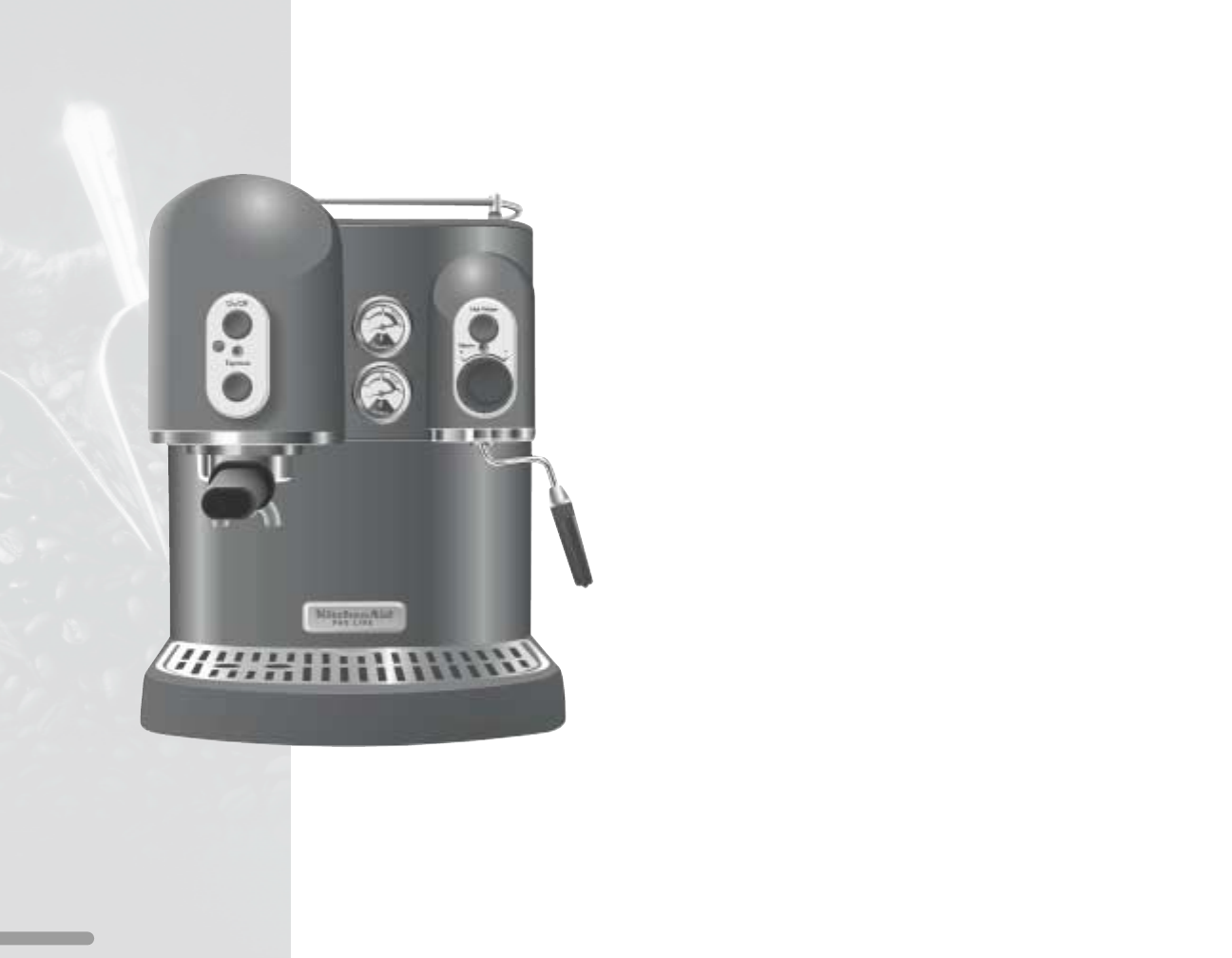
What is Espresso?
Espresso began as an attempt in the 1800s to quickly brew coffee
on demand, by the cup. The goal was to serve the freshest, most
flavorful coffee possible and avoid the burned, stale taste of coffee
kept warm on a stovetop. To speed the brewing process, coffee
pioneers struck upon the idea of forcing water through the grounds
under pressure. Steam was initially used to supply the pressure,
followed by compressed air, lever operated pistons, and finally, the
electric water pump.
Through the decades, the elements of espresso brewing were tested
and refined to produce the standards we have today: one ounce of
true espresso comes from exposing
1
⁄4 ounce (7 grams) of finely
ground and packed coffee to 195–205º F water under 130 lbs.
(9 bars) of pressure. In a brief 25 seconds, most of the highly flavorful
coffee aromas and oils are extracted, while the more bitter
compounds and off-tastes are left behind.
When the ground coffee is fresh and the brewing is done well, the
pressurized brew water emulsifies the coffee oils into the golden
foam called crema, which crowns the espresso shot with ultimate
flavor and aroma.
TECHNIQUES
OF A BARISTA
28


















